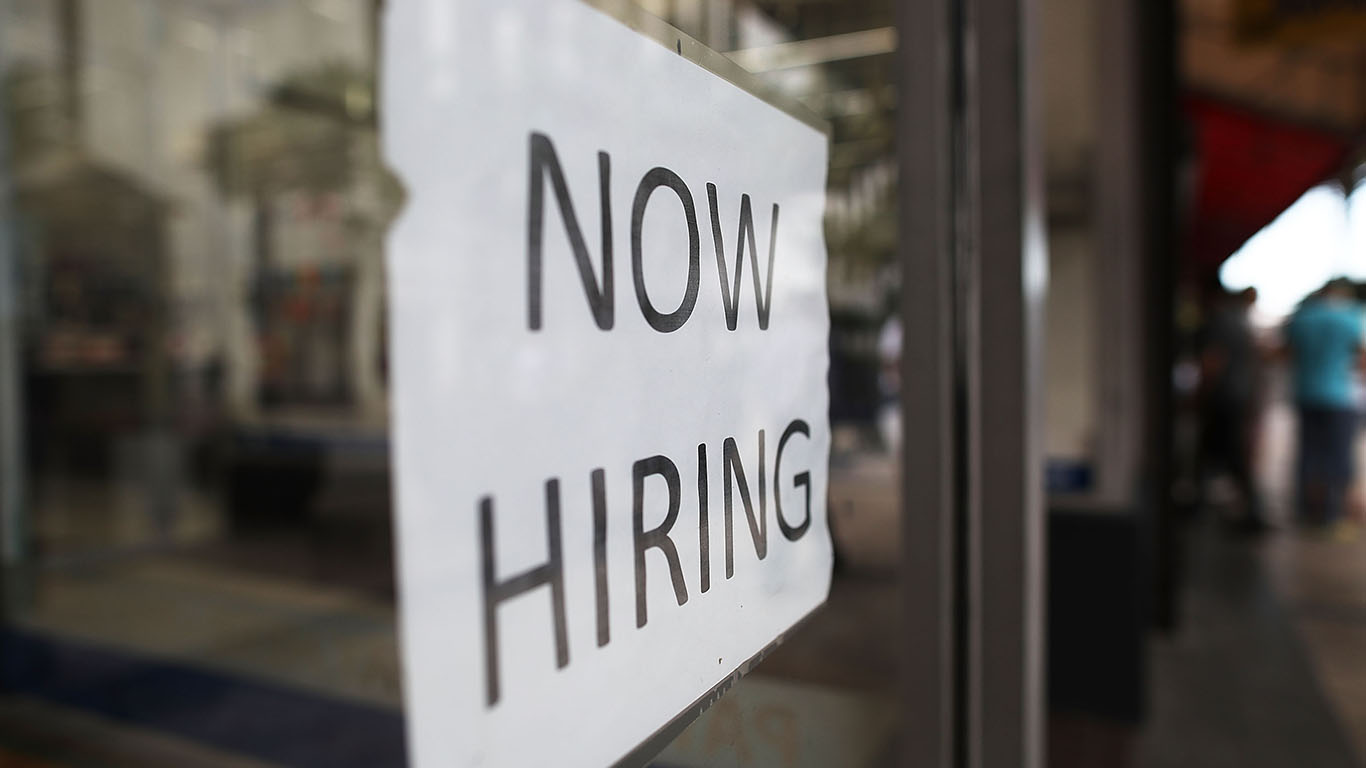Economy
ADP Signals Strong Payrolls Gains for Friday's BLS Report

Published:
Last Updated:

With the first Friday of the month less than 48 hours away, it’s time to brace for another unemployment report from the U.S. Labor Department. ADP issues its monthly ADP Employment Report two days ahead of the Labor Department report, and traders, economists, investors, employers and workers all use the data as a preview for whether the official payrolls report will be strong.
ADP reported that private sector payrolls rose by 219,000 in July. Dow Jones had called for just 185,000 in additional payrolls, and the June payrolls was a gain of 181,000. This was actually the highest payrolls report since February of this year.
Small businesses (49 and fewer employees) accounted for 52,000 of those job gains, and large businesses (500 or more employees) accounted for 48,000 of those job gains. Midsized businesses (50 to 499 employees) made the lion’s share of the gains with 119,000 in added payrolls in July.
The breakdown shows most gains (177,000) were in the service-providing side of the economy. The goods-producing portion of the economy created 42,000 jobs.
Using ADP to predict the formal Labor Department’s number has been far from an exact science over the years. After all, the pool of workers at the Labor Department focuses on the millions of government jobs and the millions of private sector jobs. That said, ADP’s report is used for a directional bias to how strong or weak a Labor Department report can be on the private sector nonfarm payrolls. ADP’s report is derived from ADP’s actual payroll data and is meant to measure the change in total nonfarm private employment each month on a seasonally adjusted basis.
ADP gives two quotes with each payrolls report. From Ahu Yildirmaz, vice president and co-head of the ADP Research Institute:
The labor market is on a roll with no signs of a slowdown in sight. Nearly every industry posted strong gains and small business hiring picked up.
Mark Zandi, chief economist of Moody’s Analytics, said:
The job market is booming, impacted by the deficit-financed tax cuts and increases in government spending. Tariffs have yet to materially impact jobs, but the multinational companies shed jobs last month, signaling the threat.
If you’re one of the over 4 Million Americans set to retire this year, you may want to pay attention.
Finding a financial advisor who puts your interest first can be the difference between a rich retirement and barely getting by, and today it’s easier than ever. SmartAsset’s free tool matches you with up to three fiduciary financial advisors that serve your area in minutes. Each advisor has been carefully vetted, and must act in your best interests. Start your search now.
Don’t waste another minute; get started right here and help your retirement dreams become a retirement reality.
Thank you for reading! Have some feedback for us?
Contact the 24/7 Wall St. editorial team.